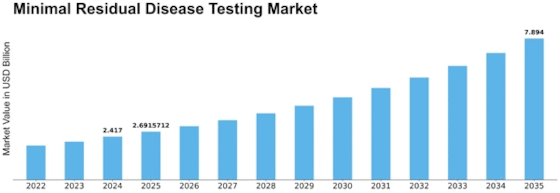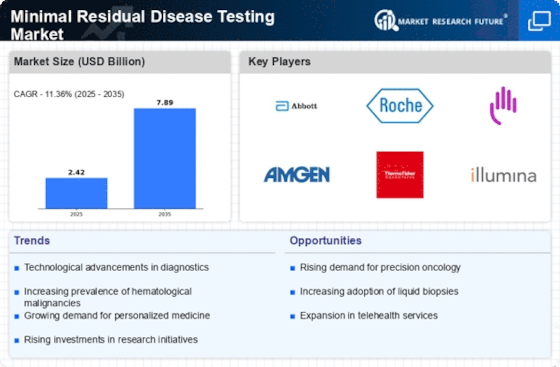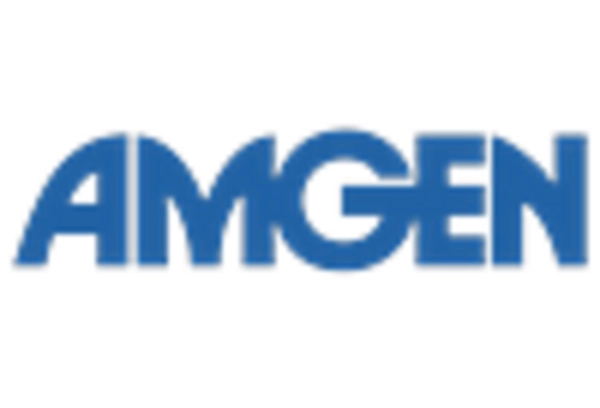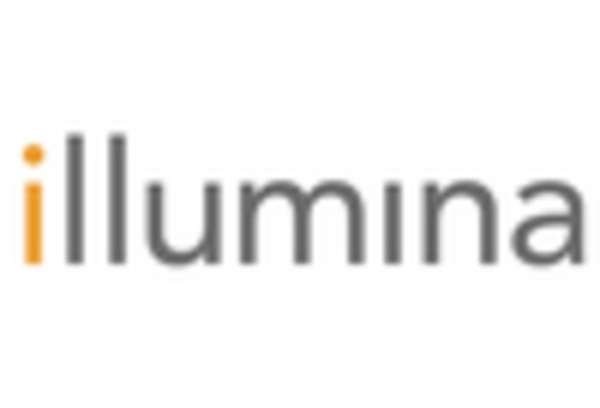Minimal Residual Disease Testing Size
Minimal Residual Disease Testing Market Growth Projections and Opportunities
The growth of the minimal residual disease testing goes up to USD 6.38 billion by 2032. This is at a CAGR of 11.36% from 2032 to 2032 3. This indicates that there will be a lot of money involved with it. The Minimal Residual Disease (MRD) Testing Market envelopes an area being governed by several parameters that together hold the core of its development and expansion. MRD testing is a technologically advanced method of detection and assessment of microscopic quantities of residual cancer cells in the human body, which may persist after treatment. The market factors have a considerable impact on the market through the improvements in molecular diagnostics, increasing incidence of cancer, emphasizing on personalized medicine with regards to to the regulatory considerations and trying to get more sensitive and accurate detection inventions.
The Molecular Diagnostics field in general is one of the key factors that are transforming the situation in the MRD testing market greatly. With the high-throughput sequencing technology, next-generation sequencing (NGS) and the frequent and unique molecular assays, the sensitivity and specificity of minimal residual disease (MRD) testing is much higher now than previously.
The rising occurrence of cancer worldwide is a main motivator that is fuelling the market trends of liquids having monoclonal antibodies. Cancer incidence is on the rise coupled with the growing demand of better treatment approaches. Monitoring cancer if still present or showing signs of recurrence becomes critical in treatment response evaluation and patient's prognosis. The ascendancy of the MRD testing, which has been proven to be feasible in various cancer types like hematological malignancies and solid tumors, portends the fast-paced nature of the market in quest of the best results for patients that are possible using early and accurate detection.
Modern approaches in personalized medicine is now an important factor in changing the market landscape of MRD testing. Customized treatment strategies, designed to fit individual genomic and molecular profiles of particularly patient, always need diagnostic details offered by MRD testing for perfection. MRD testing integration is leading to that of personalized medicine for patients and the consequent market dynamics interference. The effects on cancer care are beyond the comprehension of many.
Another major driving force that compete diagnostic companies and the testing laboratories offering MRD testing service is the market competition. Firms endeavor to distinguish themselves from competitors by inventing unique MRD testing platforms applicable to broader spectrum of cancer types, as well as they are enhancing the time needed for results. The highly competitive market culture accommodates innovativeness as entities strive to fill range needs of oncologists, to improve the reach of MRD testing, and to better patients' experiences. This competition unleashes the continuous evolution of the MRD Testing Market with the constant urge to reach newer heights in technology and meet the requirements of the cancer research fraternity.



















Leave a Comment